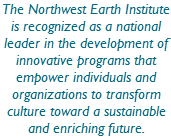You are currently browsing the tag archive for the ‘reuse’ tag.
 Last month we featured Betty Shelley, long-time NWEI volunteer and waste reduction expert on our blog. Betty and her husband Jon generate only one can of garbage per year. Yep, per YEAR. Applaudable, and for the rest of us, seemingly impossible, right? I signed up for Betty’s “Less is More: Getting to One Can of Garbage Per Year” class to find out just how she does it, and how I could reduce my family’s garbage.
Last month we featured Betty Shelley, long-time NWEI volunteer and waste reduction expert on our blog. Betty and her husband Jon generate only one can of garbage per year. Yep, per YEAR. Applaudable, and for the rest of us, seemingly impossible, right? I signed up for Betty’s “Less is More: Getting to One Can of Garbage Per Year” class to find out just how she does it, and how I could reduce my family’s garbage.
We’re no strangers to the 3 R’s — reduce, reuse, recycle — but are hard-pressed to keep our family’s garbage to one can per month. I signed up for the class hoping to learn some new “tricks” from Betty, but after participating, I’m finding the biggest benefit to attending the class was that it inspired me to take a deeper look at some of the issues, and reignited my motivation.
The class featured a video demonstrating how a landfill works. Like many people I suppose, I hadn’t given any thought to how a landfill works, and I had no idea that landfills are engineered to prevent their contents from decomposing. So those biodegradable dog poop bags I’ve been buying? They are, like everything else at the landfill, sealed off from water and air, lingering in perpetuity. Hmmm.
The class also called upon participants to do a waste audit of their household trash. My small family: two adults, a baby, a dog, a cat, and three chickens, has two problem areas revealed by the waste audit: packaging and poop. It seems that all snack foods, even the healthy or organic options, come in non-recyclable packaging. For instance, the items of convenience that make it easier to get through a busy day, like Lara Bars and Cheerios for the baby, are often in non-recyclable packaging. The poop problem is probably familiar to anyone with pets and babies. While we cloth diaper 90% of the time, disposable diapers are handy for traveling and at night. But they also generate a lot of trash! And the pets add to the problem between needing to maintain our good-neighbor status by picking up after our dog, and dealing with the litter box.
The Less is More class inspired me to do some additional research, and while an animal septic tank is out of the question here in Portland because of clay soil, it’s good to know that there are other options. I’ll also be skipping the biodegradable bags, because given where they are going to end up, it seems like a better option to reuse a plastic newspaper bag and at least give the bag a final use.
My “Less is More” wake up call has been the need to really consider my options and weight the benefits of convenience with the reality of waste disposal. While the garbage truck takes our trash “away”, it stays with us far too long (some things probably forever!) to justify taking the convenient route all of the time. I don’t think we’ll approach the one can per year mark, but every little bit helps, so I’m keeping that in mind!
 This week I had the chance to speak with long time NWEI volunteer and Metro’s Recycling Hotline Operator Betty Shelley about how she manages to produce just one can of trash a year. Indeed, the Shelleys found a way to gradually drop garbage collection service to one can a month, then to on-call service, followed by two cans annually and, finally, one can per year since 2004. How do they do it?
This week I had the chance to speak with long time NWEI volunteer and Metro’s Recycling Hotline Operator Betty Shelley about how she manages to produce just one can of trash a year. Indeed, the Shelleys found a way to gradually drop garbage collection service to one can a month, then to on-call service, followed by two cans annually and, finally, one can per year since 2004. How do they do it?
Betty credits the Northwest Earth Institute with teaching her that everything comes from the Earth. “NWEI gets credit for where we are in life with our awareness. It is harder to make changes without a support system,” she says of her and her husband Jon’s efforts to live more sustainably. Betty says the first thing to do is to look in your garbage can and see what is in it, then find one thing to change. “It builds from there. You do it slowly and surely over time. Focusing on one habit at a time is essential so as not to become overwhelmed. I see it not as a challenge that is overwhelming but more as an opportunity.”
She suggests being clever and examining purchases closely so as to avoid waste from the beginning. “I examine purchases in the first place. Do I really need it? Can I borrow it? We are always asking how we can avoid putting something in the garbage. It makes us more creative,” Betty says. She also says that “sharing is key, and borrowing from friends in moments of need.”
Betty offers the tips below for reducing waste (these are taken from Metro’s website, where you can learn more about both recycling as well as Betty’s efforts). Betty has also created a Facebook page entitled Reduce your Waste, where you can post questions and learn more. She also recommends the film The Clean Bin Project, a documentary about zero waste.
Some ideas to get you started:
- Switch to cloth napkins
- Eliminate paper and disposable single-use products
- Compost yard debris and kitchen scraps
- Take recyclable materials to drop-off sites if they aren’t accepted curbside
- Avoid nonrecyclable items
- Buy products in bulk, storing them in your own reusable containers brought to the store. This eliminates food waste by helping ensure you buy only what you need.
- Share or exchange items with friends, family and neighbors to avoid unnecessary purchases.
- Explore new uses for old items. When Betty and Jon took down their fence, they recut the wood, building a compost corral and a screen in the garden. The old pier posts from their deck were flipped over for use as pathway stepping stones.
- Choose products and practices that support sustainability, focusing on quality over quantity, for example, and repairing rather than tossing.
- Store noncompostable food waste – bones, grease and meat wrappers, for example – in the freezer until garbage pickup.
- Set aside unwanted, still-good items for schools, shelters and other organizations that accept them.
- Cook from scratch rather than buy packaged foods.
- Buy from thrift stores.
- Before buying an item, consider what you’ll do with it when you’re done.
For more inspiration, watch an interview with Betty on KATU.
“Since 1900, US population has tripled but use of materials has increased 17-fold.”
-David Wann
Would you like to reduce your waste and your impact on the planet?
Long time NWEI volunteer Betty Shelley will be offering her three-session “Reduce Your Waste, Reduce Your Impact” class at the Northwest Earth Institute office for three consecutive Tuesdays, beginning Tuesday April 17th from 6:30 to 8:30. The class will deal with solid waste/garbage, but will also touch on reducing water, energy, and other resource use.
The format is interactive with the goal of engaging participants through discussion and assignments to explore their actions and behaviors, and learn ways to make lasting changes. Learn Betty’s techniques and share your own.
The number of participants needed is a minimum of eight and a maximum of twelve. The $25 fee (cash only) is due in full at the first meeting. Please share this with anyone you know who is interested in making a commitment to reducing their impact.
*To register, contact Betty  directly at 503-244-8044 or via email: greenhouseone@gmail.com
directly at 503-244-8044 or via email: greenhouseone@gmail.com
“It was great to talk to other people about their efforts to reduce, reuse and recycle. Just going to the class made me feel great and inspired to take more action.” Barbara
“Even knowing as much as I know, I still learned quite a bit that I take and use at home and in my business.” Lane’
“The activities and lecture portions were just short enough to keep people interested. The small tips had the best impact for me.” Jessica


